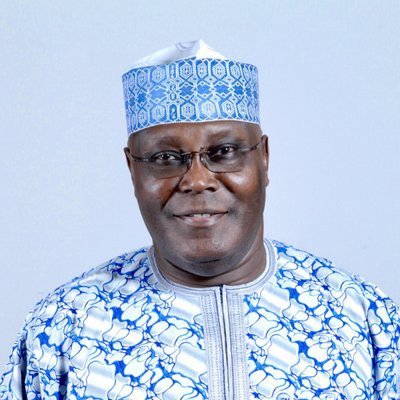In what may be the most consequential political move of the post-2023 era, former Vice President Atiku Abubakar has formally resigned from the Peoples Democratic Party (PDP), severing ties with the political house he helped build from the ground up. At 78, and with a long legacy in Nigeria’s democratic evolution, Atiku’s decision comes not merely as an end to his association with the PDP, but potentially as a strategic recalibration of his place in Nigeria’s power architecture ahead of the 2027 presidential race. Atiku’s resignation letter, dated July 14, 2025, is suffused with both nostalgia and disappointment. While expressing “profound gratitude” for his years as Vice President and presidential standard-bearer, he cited “irreconcilable differences” and the party’s deviation from its “foundational principles” as reasons for his departure. This is no mere personal lament. It is an indictment of a party that, in the eyes of one of its foremost architects, has lost its way.
Atiku’s departure from the PDP cannot be viewed in isolation. It is the culmination of months of internal divisions, visible fractures in the PDP’s leadership structure, and a festering sense of disillusionment among Northern elites within the party. The refusal of the PDP in 2023 to rotate the presidency northward was a flashpoint that Atiku never quite forgave. Since then, he has been locked in a cold war with party powerbrokers, many of whom saw his repeated candidacy as emblematic of the PDP’s inability to reinvent itself. Some will argue that this resignation is simply the swan song of a perennial aspirant fading from the scene. But that would be premature. The political instincts that carried Atiku through nearly five decades of public service and political reinvention have not dulled. If anything, this resignation may signal the launchpad for a new political maneuver—one that could redraw the 2027 political map.
Rumors have already begun to swirl around Atiku’s alleged flirtation with the African Democratic Congress (ADC), a party long known for ideological posturing but lacking serious national traction. That may change—dramatically—if Atiku, with his formidable war chest, loyal Northern base, and unmatched national name recognition, throws his weight behind it. For the ADC, such a development could be transformational. It would no longer be a fringe platform for technocrats and policy wonks, but a real vehicle for national challenge. If Atiku adopts the ADC, he wouldn’t merely be switching parties; he’d be remolding a party in his own image, free of the old-guard entanglements that stymied him in the PDP.
Atiku’s move would instantly fracture the PDP’s already dwindling support base. Without him, the PDP risks becoming a shadow of itself—still recognizable, but increasingly irrelevant. The emergence of an Atiku-led ADC or another third-force coalition could break the binary dominance of APC vs. PDP for good, especially if key figures like Peter Obi or Rabiu Kwankwaso can be persuaded to coalesce around a new platform. Furthermore, Atiku’s departure will embolden others sitting on the fence—governors, senators, and political operatives—who have grown weary of the PDP’s inertia. It may also open the door for the long-theorized “Northern political realignment,” particularly if the ruling APC continues to be viewed as Southwest-centric under Tinubu’s leadership.
President Tinubu, known for his mastery of long-term strategy, will likely view Atiku’s departure with both caution and calculation. On one hand, it weakens the PDP and removes a familiar opponent. On the other, it creates an unpredictable wildcard in the form of a potentially resurgent Atiku, no longer encumbered by PDP loyalties or internal sabotage. If Tinubu intends to seek reelection, a reinvented Atiku may appeal to those disenchanted with APC’s governance but unwilling to embrace the disjointed PDP. It also complicates Tinubu’s path in the North, where Atiku still commands deep loyalty and institutional muscle.
Some critics will view this resignation as the twilight tantrum of a statesman who refuses to quit. But to dismiss it as such would be to misunderstand both Atiku and the fluidity of Nigerian politics. If the move leads to the birth of a real third force; or even a Northern-dominated counterweight to Tinubu’s incumbency; it may reshape the 2027 election into a three-horse race that ends the long-standing duopoly. And even if Atiku doesn’t run, he could still emerge as kingmaker; leveraging his influence to anoint a successor under a new banner, perhaps preserving his legacy in the process. Atiku’s exit from the PDP may well mark the end of an era, but it is no quiet exit. It is a thunderclap heralding deeper political tremors in the Nigerian polity. Whether as a candidate, coalition builder, or disruptor, Atiku Abubakar is not done yet. The stage for 2027 has been reset. And the game, once again, is wide open.





